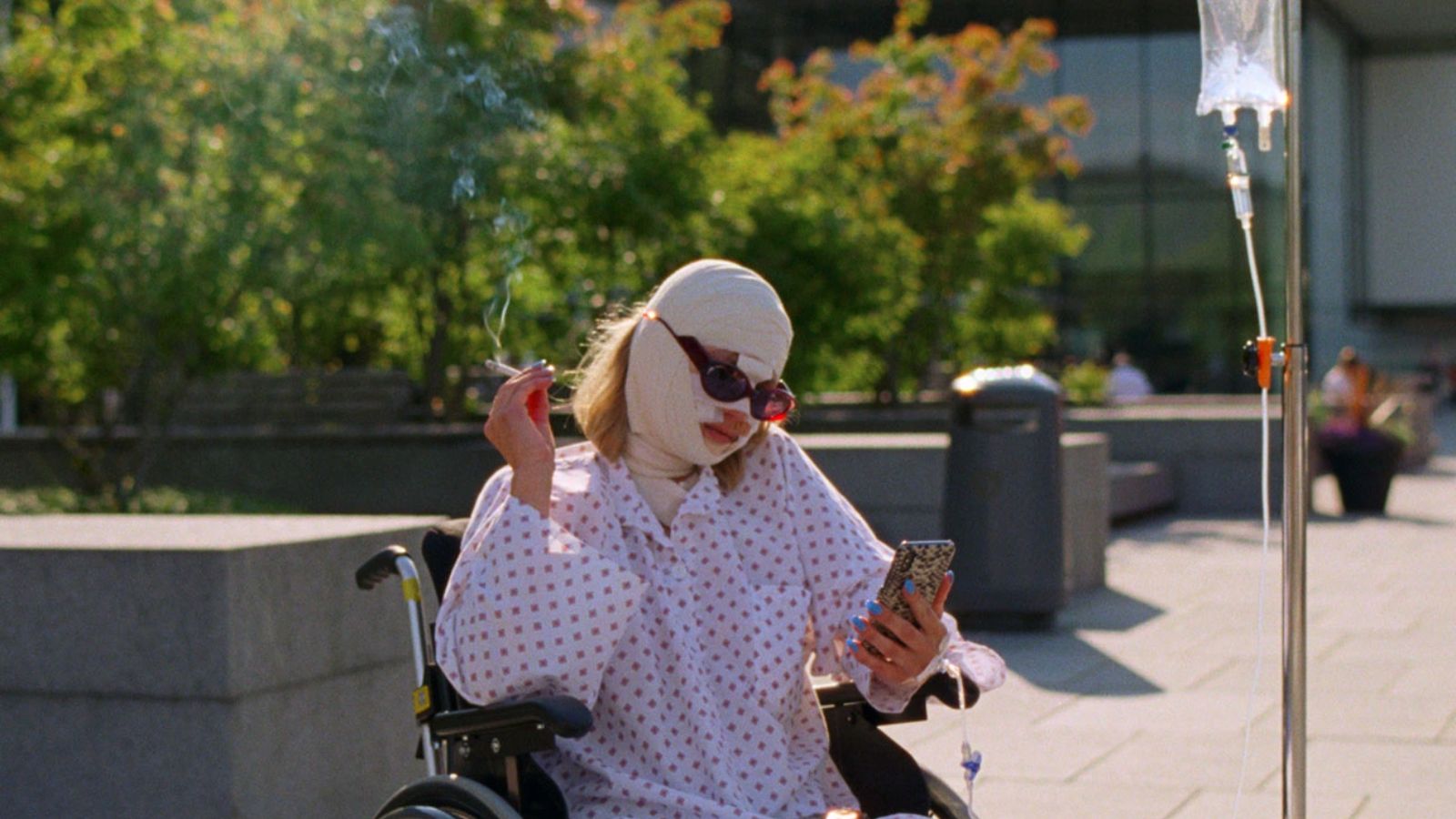From Sick of Myself’s opening scene depicting an awkward birthday dinner, the power dynamic between young couple Signe (Kristine Kujath Thorp) and Erik (Eirik Saether) is succinctly established. The latter is taking off with new magazine profiles and gallery attention every day through his seemingly lame, vaguely defined art. Compared to a partner able to afford (and furthermore flaunt) a $2,300 bottle of wine as a gift during this expensive restaurant dinner, Signe, finding herself still employed in a café, is deeply jealous.
As she remarks to a friend: “You need to be a narcissist to make it.” In this case not just reaffirming herself, but referencing her boyfriend’s own brand of self-obsession in the face of his newfound success. A service worker living in the shadow of her acclaimed artist partner has, of course, definite echoes of another Norwegian millennial odyssey, The World Person in the World. Sick of Myself is certainly a welcome acidic retort to that film’s softball humanism, even if writer-director Krisoffer Borgli doesn’t quite have his countryman Joachim Trier’s knack for memorable set-pieces and montages. Though one needs to dive deeper into the great hook of the film that separates their respective worldviews; Signe, after reading about a drastic skin disease caused by a mysterious drug, takes to acquiring it from a loser dealer pal, hoping she’ll disfigure her way into pity and, furthermore, constant attention. With every slight slip in notice of her from the couple’s extended group of friends and well-wishers, she slides deeper into her cry for attention, or rather self-abasement.
Though if there’s a problem with the film, it’s being basically one joke stretched to 97 minutes. The dry tone produces only a few truly laugh-out-loud moments, and you begin getting the feeling Borgli may not ultimately have that much to say. Yet still there’s something to seeing such a frequent topic of conversation in everyday millennial and Gen Z life materialized. Have we somehow valorized victimhood in the age of social media? Has the 80s/90s cult mentality of self-interest, drilled into the older generations, morphed into a different form of tunnel vision, one about scoring social capital in the current day and age?
It’s refreshing that the film doesn’t actually fixate on social media or technology to an obnoxious degree. (Maybe I also just don’t want to have to think about it any more than I do in the span of a day). Even making the “classical” decision to shoot on film instead of digital points to the terrain Sick of Myself is playing in. For taking place within the realm of the mind, Signe’s numerous daydream sequences (which feel like a deliberate nod to The King of Comedy) that populate the film see even bad outcomes overwhelm them––perceptive as to how often you can’t totally escape negativity even in the realm of fantasy. Yet its worthy observations don’t go too far beyond that; I think we already know how many people fantasize about their own funeral.
Borgli has the chance to say something greater, though. Of course, having to keep the grift going, Signe must amp up both her condition and platform. By the third act taking aim at “inclusive modeling” (one wishes it was actually willing to be as politically incorrect as one joke involving a blind assistant), Sick of Myself opens itself to an even broader social satire. Yet despite blood, vomit, and increasing makeup-effect disfigurement, the feeling that this could’ve taken its bitter satire further, to a kind of comic delirium, becomes present. But the film at least sticks its landing: not redeeming the character without casting the kind of damning moral judgment of the times that only breeds more sick narcissism and exhibitionism.
Sick of Myself is now in limited release.

